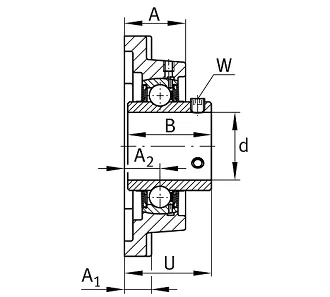Nov . 16, 2024 07:36 Back to list
Leading Manufacturer of High-Performance Industrial Ceramic Bearings for Various Applications
Industrial Ceramic Bearings A Comprehensive Overview of their Manufacturing
In today's rapidly evolving industrial landscape, the demand for high-performance components is more critical than ever. Among these components, ceramic bearings stand out for their unique properties and advantages over traditional materials. This article delves into the world of industrial ceramic bearings, focusing on their manufacturing process, benefits, and applications.
Ceramic bearings are typically made from materials such as silicon nitride or zirconia, which offer exceptional resistance to wear and corrosion. The manufacturing process begins with the selection of high-quality raw materials. These materials are subjected to meticulous processing involving precise powder engineering, where the powders are blended to achieve the desired properties.
The next step in the manufacturing of ceramic bearings is shaping. Advanced techniques such as isostatic pressing or computer numerical control (CNC) machining are employed to form the ceramic into the required bearing shapes. Isostatic pressing involves applying uniform pressure from all sides, which ensures a homogenous density and minimizes defects. CNC machining allows for high precision, making it possible to achieve intricate designs and exact specifications.
industrial ceramic bearings manufacturer

After shaping, the components undergo a sintering process. This involves heating the shaped ceramic in a controlled environment, allowing the particles to bond and form a solid structure. The sintering temperature and time are carefully monitored to optimize the mechanical properties of the bearing. Once sintering is completed, the bearings are often subjected to final grinding to achieve the desired surface finish and dimensional accuracy.
The benefits of industrial ceramic bearings are numerous. They exhibit lower friction, which leads to reduced energy consumption and extended service life. Their resistance to high temperatures and aggressive chemicals makes them ideal for use in harsh environments, such as in aerospace, automotive, and manufacturing industries. Additionally, ceramic bearings are non-magnetic and electrically insulating, making them suitable for applications requiring minimal interference.
In conclusion, the manufacturing of industrial ceramic bearings combines advanced materials science with precise engineering techniques. As industries continue to seek reliable and efficient solutions, ceramic bearings are poised to play an increasingly vital role in enhancing performance and innovation. The commitment of manufacturers to quality and innovation will ensure that these components remain at the forefront of technological advancements, catering to the growing needs of various industries.
Latest news
-
Best SEO Optimization Tool: Boost Rankings Fast & Easily
NewsJul.21,2025
-
25MM 2 BOLT UCFLX05-14 Flange bearing unit( oval)
NewsMar.07,2025
-
4 bolt UCF 200 series Pillow block bearings
NewsMar.07,2025
-
25MM 2 BOLT UCFLX05-14 Flange bearing unit( oval)
NewsMar.07,2025
-
UCF216-50 4-Bolt Flange Housing Square Bearing
NewsMar.07,2025
-
25MM 2 BOLT UCFLX05-14 Flange bearing unit( oval)
NewsMar.07,2025





